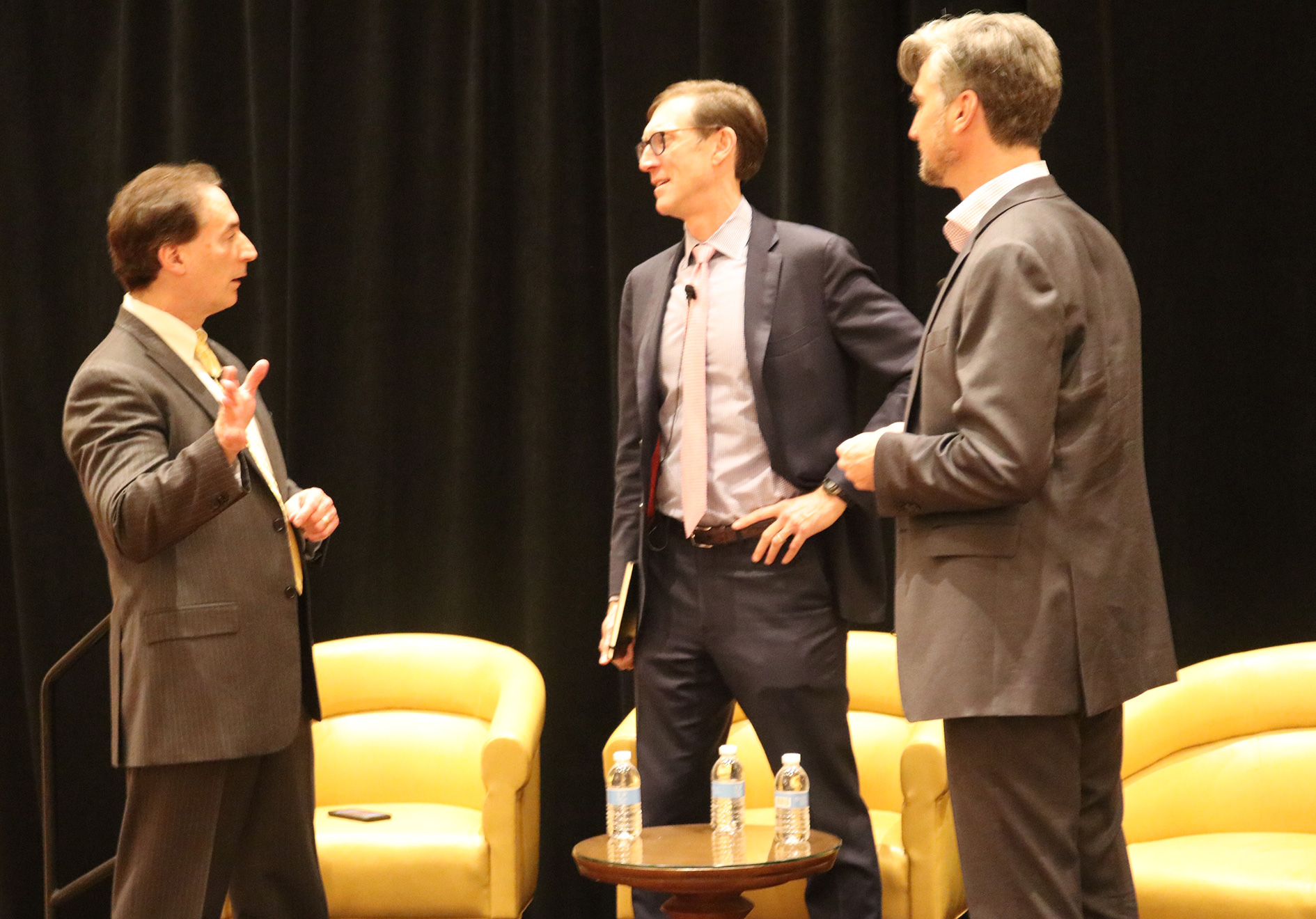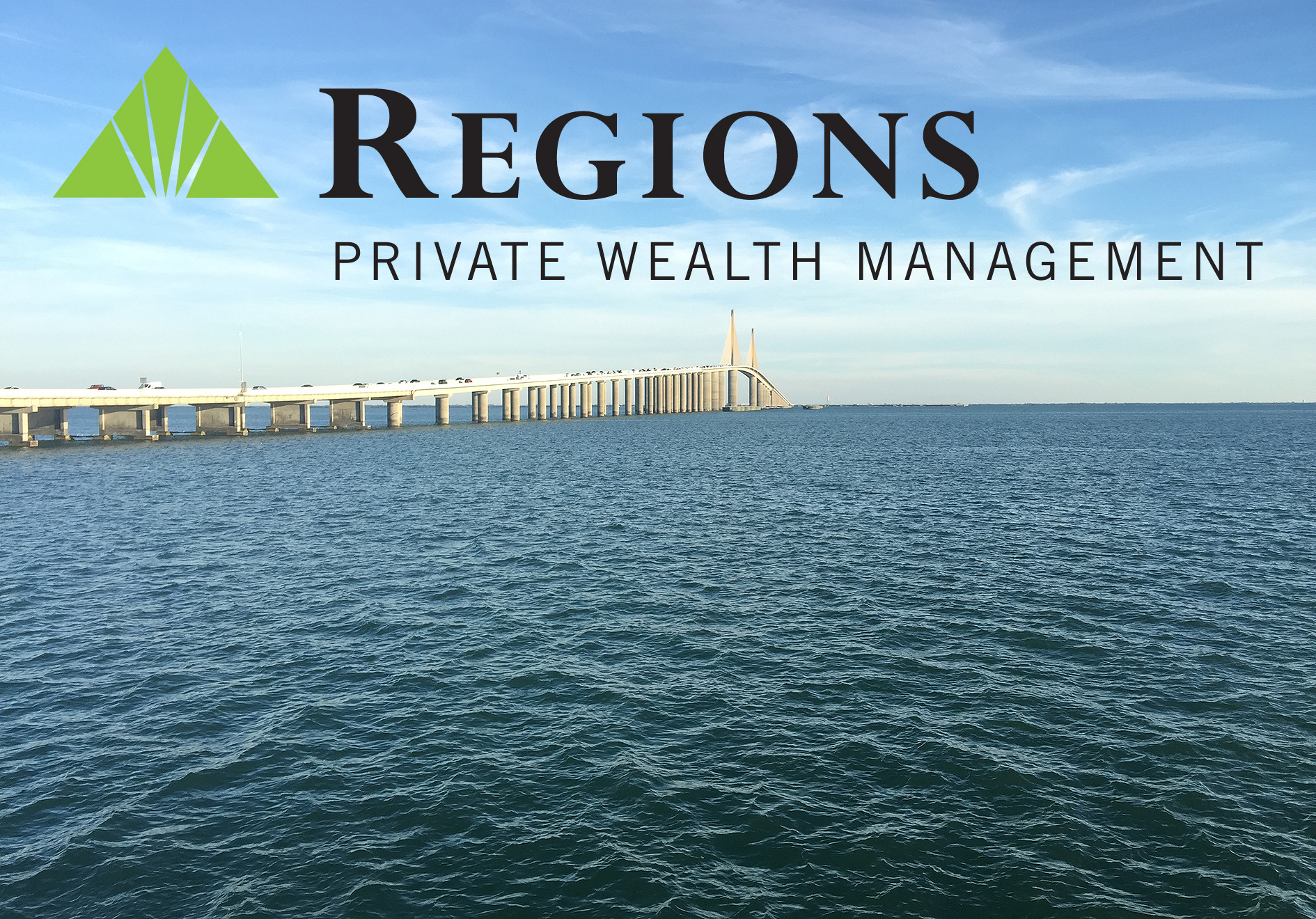Charles Dickens got it right back in A Tale of Two Cities: “It was the best of times, it was the worst of times.”
The famous line, published in 1859, is apropos today when Regions’ Chief Investment Officer Alan McKnight describes economic and investment volatility of late. His comments came during discussions with business professionals and community members from around Tampa Bay. But they apply to investors and business professionals in any community.
Joining McKnight on Jan. 24 were Regions Chief Economist Richard Moody and Head of Public Policy Chris Scribner.
“The economy is still growing, but people are confusing slowing economic growth with the end of growth,” Moody told a lunchtime crowd during a Regions-organized economic forum. “If you look at the headlines recently, you might think that we are already in a recession.”
According to Moody, that just isn’t the case.
The economy grew around 2.9 percent in 2018, the fastest year of growth in the nearly 10-year life of the current economic expansion. The 2018 rate was fueled, in part, by the 2.6 million jobs added to the labor market, the best year of job growth since 2015.
With a strong labor market fueling faster wage growth underpinning household finances, consumer confidence was high in 2019.
Entering 2019, Moody predicts the economy is poised for more growth.
“Job growth across a broad base of industry groups in 2018 leads me to believe that the economic expansion has more life to it,” he said, adding, “If the current expansion continues through July of this year, as we fully expect, it will be the longest expansion on record.”
 Regions Chief Economist Richard Moody, left, Chief Investment Officer Alan McKnight, center, and Public Policy Manager Chris Scribner, right, gather before beginning a panel discussion in Tampa on the economy, investments and policy.
Regions Chief Economist Richard Moody, left, Chief Investment Officer Alan McKnight, center, and Public Policy Manager Chris Scribner, right, gather before beginning a panel discussion in Tampa on the economy, investments and policy.
As far as markets are concerned, the S&P 500 was up more than 7 percent through the first three quarters of 2018.
With this strong data, we are living in the best of times, right? Well, not exactly.
The market dropped by 19.5 percent during the last quarter of the year, and the Dow ended 2018 with the worst Christmas Eve loss in history, a day dubbed the “Christmas Eve massacre” – the worst of times for many people who were trying to enjoy the holiday with family, but were deeply concerned about what impact 2019 might have on their investments.
And Christmas Eve was only one day in what would become the worst December return on record since 1931, when America was in the grips of the Great Depression.
McKnight believes the stock market fell at the end of 2018 in part because of a rush to judgment that the economy was going off a cliff when, in fact, the economy was just slowing a bit.
“How the stock market reacted at the end of 2018 is not indicative of where we are going,” said McKnight.
“Wealth favors the prepared mind. We are preparing for slower market growth in the economy in 2019, but positive returns can still be generated in that type of market environment,” he added.
Moody agrees, saying while growth is expected to continue into 2019, he expects it will slower that what we have seen.
“Economic expansion doesn’t die because of old age,” noted Moody, referencing roughly 10 years of slow, but persistent, economic expansion.
The group is also closely monitoring other issues that may impact the economy and the markets in 2019. High on that list is Congress.
Based in Washington, D.C., Scribner is part of Regions’ Government Affairs team that monitors government and regulatory policies. He said he expects trade and tariff policies, important to President Trump’s agenda, will continue to be top priorities this year.
“The administration successfully renegotiated the North America Free Trade Agreement in 2018, and it faces more complex negotiations with China this year,” said Scribner.
The economic forum was arranged by Regions West Florida Area Wealth Executive Stephanie Stanfield, who said her goal is to help people understand what is happening and how to adjust their financial plans accordingly.
“Regions’ focus is to monitor the economic landscape and help people understand how it may impact them financially and how they may need to prepare,” she said. “Taking the time to gather some perspective and listen to the experience of people who deeply understand the economy and the markets can pay dividends for investors over time.”
Moody writes a monthly economic review linked here, where he shares insights on recent data and long-term trends. Further, McKnight and Regions’ team of investment professionals offer a weekly commentary for investors at this link.
 This information is general in nature and is provided for educational purposes only. Regions makes no representations as to the accuracy, completeness, timeliness, suitability, or validity of any information presented. Information provided and statements made by employees of Regions should not be relied on or interpreted as accounting, financial planning, investment, legal, or tax advice. Certain sections may contain forward-looking statements that are based on the reasonable expectations, estimates, projections and assumptions of the presenter, but forward-looking statements are not guarantees of future performance and involve risks and uncertainties, which are difficult to predict. Regions encourages you to consult a professional concerning your specific situation.
This information is general in nature and is provided for educational purposes only. Regions makes no representations as to the accuracy, completeness, timeliness, suitability, or validity of any information presented. Information provided and statements made by employees of Regions should not be relied on or interpreted as accounting, financial planning, investment, legal, or tax advice. Certain sections may contain forward-looking statements that are based on the reasonable expectations, estimates, projections and assumptions of the presenter, but forward-looking statements are not guarantees of future performance and involve risks and uncertainties, which are difficult to predict. Regions encourages you to consult a professional concerning your specific situation.